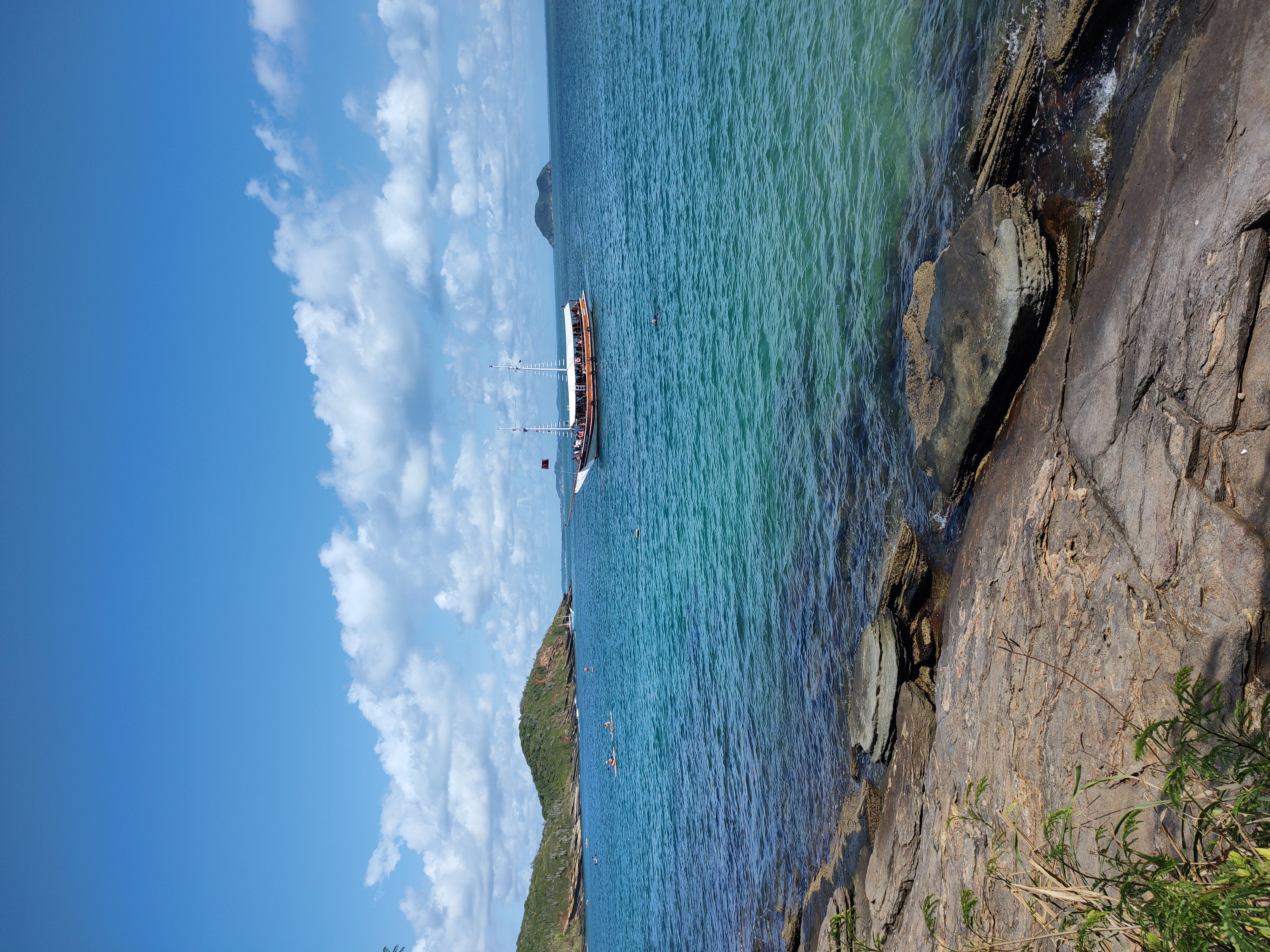Discovering the relevance of the personality of the destination brand - a literature review
DOI:
https://doi.org/10.29149/mtr.v7i1.6535Palavras-chave:
city brand personality; place brand personality; destination brand personality; city brand perception; city image.Resumo
Brand personality is highly significant for creating brand loyalty to withstand pressure in the highly competitive environment. Due to the cosmopolitanism and affordable traveling, people have become jaded and hard to surprise, thus, cities’ authorities must create smart destination brand personalities to attract more visitors. The aim of this paper is to gather the most popular city branding tools, trends and similarities through bibliometric study and present a broad view of the researches that have been conducted regarding destination brand personality. As a methodology, it uses a qualitative analysis which was made by exploring a scientific database. A common ground for all previous research on the topic tends to be the 5 Aaker’s Brand Personality Scale dimensions (1997) or extended to the 6 dimensions scale used in the most recent studies. The limitations of the research can indicate that there are still gaps in the literature connected to this topic, and the paper includes suggestions to fill them in. Most of the studies had focused on tourists’ perspective, and do not take residents’ views into consideration. As main results, we found that, research shows that young residents should be more involved into the destination’s branding process. Also, social media platforms as a marketing tool for promoting cities and gathering feedback from locals and tourists are understudied.
Referências
Aaker, J. (1997). Dimensions of Brand Personality. Journal of Marketing Research, 34, pp. 347-356.
Ahmad, M. F., Abdullah, Z. B., Tamam, E. B. & Bolong, J. B. (2013). Determinant attributes of city brand personality that influence strategic communication. Canadian Social Science, 9(2), pp. 40-47.
Ashworth, G. J., Kavaratzis, M. & Warnaby, G. (2015). The need to rethink place branding. In M. Kavaratzis, G. Warnaby and G. J. Ashworth (Eds.). Rethinking place branding, pp. 1-12. Heidelberg, Springer.
Avraham, E. & Ketter, E. (2008). Media strategies for marketing places in crisis. Improving the image of cities, countries and tourist destinations. Oxford: Elsevier.
Braun, E., Kavaratzis, M. & Zenker, S. (2013). My city–my brand: The different roles of residents in place branding. Journal of Place Management and Development, 6(1), pp. 18-28.
Dickinger, A., & Lalicic, L. (2016). An analysis of destination brand personality and emotions: A comparison study. Information Technology & Tourism, 15, pp. 317–340.
Dinnie, K. (2011). City branding: Theory and cases. Houndmills: Palgrave Macmillan.
Ekinci, Y. & Hosany, S. (2006). Destination personality: an application of brand personality to tourism destinations. Journal of Travel Research, 45, pp. 127-139.
Escalas, J. E. & Bettman, R. J. (2003). You are what they eat: the influence of reference groups on consumers' connections to brands. Journal of Consumer Psychology, 13, pp. 339-348.
Florek, M. (2011). No place like home: Perspectives on place attachment and impacts on city management. Journal of Town and City Management, 1(4), pp. 346–354.
Florek, M. (2013). Links between city brand identity and positioning: implications for the communication strategy, In Proceedings of International City Branding Symposium 2013. Positioning Cities: Innovative and Sustainable Strategies for City Development and Transformation, pp. 136-152.
Ghalib, A., Qadir, A. and Ahmad, S.R. (2017). Evaluation of Developmental Progress in Some Cities of Punjab, Pakistan, Using Urban Sustainability Indicators. Sustainability, 9, p. 1473.
Glinska, E. & Kilon, J. (2014). Desirable traits of the city brand personality, included in advertising slogans of Polish towns/cities, Economics and Management, 19(3).
Glinska, E. & Kilon, J. (2014). Desirable traits of the city brand personality in the opinion of managers for the promotion of the city government in Poland, Procedia - Social and Behavioral Sciences, 56, 418 – 423
Ha, L. (2019). What You Should Know About the Gen Z Family. Euromonitor. [On-line]. Available at https://blog.euromonitor.com/what-you-should-know-about-the-gen-z-family. [Accessed on 03/01/2020].
Hanna, S. & Rowley, J. (2017). Do places have a personality? In A. Bayraktar & C. Uslay (Eds.), Strategic place brand methodologies and theory for tourist attractions, pp. 21-41.
Hanna, S. & Rowley, J. (2019). The projected destination brand personalities of European capital cities and their positioning. Journal of Marketing Management, 35, pp. 1135-1158.
Homburg, C., Ehm, L. & Artz, M. (2015). Measuring and managing consumer sentiment in an online community environment. Journal of Marketing Research, 52(5), pp. 629–641.
Hosany, S., Ekinci, Y. &Uysal, M. (2006). Destination image and destination personality: An application of branding theories to tourism places. Journal of Business Research, 59(5), pp. 638-642.
Kavaratzis, M. (2004). From city marketing to city branding: Towards a theoretical framework for developing city brands. Place Branding and Public Diplomacy, 1(1), pp. 58-73.
Kavaratzis, M. & Hatch, M. J. (2013). The dynamics of place brands: An identity-based approach to place branding theory. Marketing Theory, 13(1), pp. 69-86.
Keller, K. L. (1993). Conceptualising, measuring and managing customer-based brand equity. Journal of Marketing, 57, pp. 1-22.
Kendall, K. W. & Gursoy, D. (2007). A managerial approach to positioning and branding: Eponymus or efficient. Tourism Analysis, 12, pp. 473-483.
Kim, H.-B. & Lee, S. (2015). Impacts of city personality and image on revisit intention. International Journal of Tourism Cities, 1, pp. 50-69.
Landon, E. L. (1974). Self-concept, ideal self-concept and consumer purchase intentions. Journal of Consumer Research, 1, pp. 44-51.
Loureiro, S. M. C., Stylos, N. & Miranda, F. J. (2019). Exploring how mindfulness may enhance perceived value of travel experience. The Service Industries Journal, pp. 1-25.
Luque-Martínez, T., Del Barrio-García, S., Ibáñez-Zapata, J. A. & Rodríguez-Molina, M. A. (2007). Modeling a city's image: The case of Granada. Cities, 24(5), pp. 335-352.
Maehle, N., Otnes, C.& Supphellen, M. (2011). Consumers’ perceptions of the dimensions of brand personality. Journal of Consumer Behaviour, 10, pp. 290-303.
Malhotra, N. K. (1988). Self-concept and product choice: an integrated perspective. Journal of Economic Psychology, 9, pp. 1-28.
Manyiwa, S., Priporas, C. V. & Wang, X. L. (2018). Influence of perceived city brand image on emotional attachment to the city. Journal of Place Management and Development, 11(1), pp. 60–77.
Molina, A., Fernandez, A. C., Gomez, M. & Aranda, E. (2017). Differences in the city branding of European capitals based on online vs. offline sources of information. Tourism Management, 58, pp. 28-39.
Mori, K. & Yamashita, T. (2015). Methodological framework of sustainability assessment in City Sustainability Index (CSI): A concept of constraint and maximisation indicators. Habitat Int., 45, pp. 10-14.
Pickett, S.T.A., Boone, C.G., McGrath, B.P., Cadenasso, M.L., Childers, D.L., Ogden, L.A., McHale, M. & Grove, J.M. (2013). Ecological science and transformation to the sustainable city. Cities, 32(1), pp. 10-20.
Pike, S. & Ryan, C. (2004). Destination positioning analysis through a comparison of cognitive, affective, and conative perceptions. Journal of Travel Research, 42, pp. 333–342.
Priporas, C. V., Stylos, N. & Fotiadis, A. K. (2017). Generation Z consumers' expectations of interactions in smart retailing: A future agenda. Computers in Human Behavior, 77, pp. 374-381.
Priporas, C. V., Stylos, N. & Kamenidou, I. (2019). City image, city brand personality and generation Z residents’ life satisfaction under economic crisis: Predictors of city-related social media engagement, Journal of Business Research. https://doi.org/10.1016/j.jbusres.2019.05.019
Sahin, S. & Baloglu, S. (2011). Brand personality and destination image of Istanbul. Anatolia–An International Journal of Tourism & Hospitality Research, 22, pp. 69-88.
Sahin, S. & Baloglu, S. (2014). City branding: Investigating a brand advocacy model for distinct segments. Journal of Hospitality Marketing & Management, 23, pp. 239-265.
Seimiene, E. & Kamarauskaite, E. (2014). Effect of Brand Elements on Brand Personality Perception, Procedia - Social and Behavioral Sciences, 156, pp. 429-434.
Sirgy, M. J. (1982). Self-concept in consumer behavior: a critical review. Journal of Consumer Research, 9, pp. 287-300.
Sirgy, M. J., Johar, J. S., Samli, A. C. & Claiborne, C. B. (1991). Self-congruity versus functional congruity: predictors of consumer behavior. Journal of the Academy of Marketing Science, 19(4), pp. 363-375.
Sirgy, M. J. & Su, C. (2000). Destination image, self-congruity, and travel behavior: toward an integrative model. Journal of Travel Research, 38, pp. 340-352.
Solis, B. (2011). Engage! The complete guide for brands and businesses to build, cultivate, and measure success in the new web, revised and updated. Hoboken, Wiley.
Tugulea, O. (2017). City Brand Personality-Relations with Dimensions and Dimensions Inter-Relations, Sustainability, 9(12).
Uchinaka, S., Yoganathan, V. & Osburg, V. S. (2019). Classifying residents' roles as online place-ambassadors. Tourism Management, 71, pp. 137-150.
Usakli, A. & Baloglu, S. (2011). Brand personality of tourist destinations: An application of self-congruity theory, Tourism Management, 32, pp. 114-127.
Wee, T. (2004). Extending human personality to brands: the stability factor. Journal of Brand Management, 11, pp. 317-330.
Yussof, F. M., Harun, A., Norizan, N. S., Durani, N., Jamil, I. & Salleh, S. M. (2018). The influence of social media consumption on gen Z consumers' attitude. Journal of Fundamental and Applied Sciences, 10(6), pp. 1288-1299.
Zavattaro, S. M. (2014). Place branding through phases of the image: balancing image and substance, New York: Palgrave Macmillan.
Zenker, S. (2009). Who’s your target? The creative class as a target group for place branding. Journal of Place Management & Development, 2(1), pp. 23-32.
Zenker, S. & Beckmann, S. C. (2013). My place is not your place–different place brand knowledge by different target groups. Journal of Place Management & Development, 6(1), pp. 6-17.
Zenker, S. & Martin, N. (2011). Measuring success in place marketing and branding. Place Branding and Public Diplomacy, 7(1), pp. 32-41.
Downloads
Publicado
Como Citar
Edição
Seção
Licença
Copyright (c) 2021 Manuel Sousa Pereira

Este trabalho está licenciado sob uma licença Creative Commons Attribution 4.0 International License.
Autores que publicam nesta revista concordam com os seguintes termos:
- Autores mantém os direitos autorais e concedem à revista, sem ônus para a mesma, o direito de primeira publicação, com o trabalho simultaneamente licenciado sob a Licença Creative Commons Attribution que permite o compartilhamento do trabalho com reconhecimento da autoria e publicação inicial nesta revista
- Autores têm autorização para assumir contratos adicionais separadamente, para distribuição não-exclusiva da versão do trabalho publicada nesta revista (ex.: publicar em repositório institucional ou como capítulo de livro), com reconhecimento de autoria e publicação inicial nesta revista.
- Autores assumem exclusiva responsabilidade pelas suas opiniões emitidas nos trabalhos publicados nesta revista
















